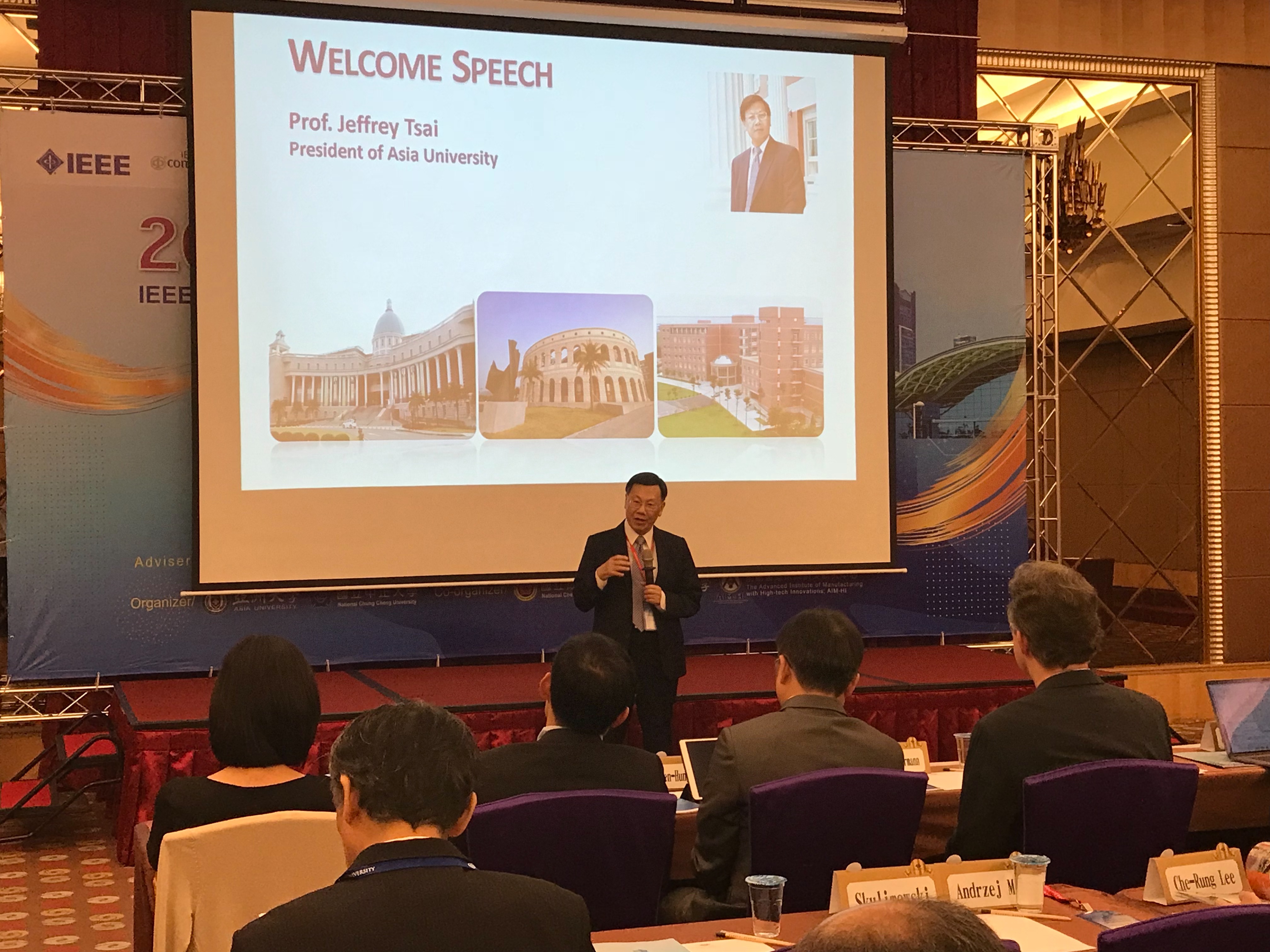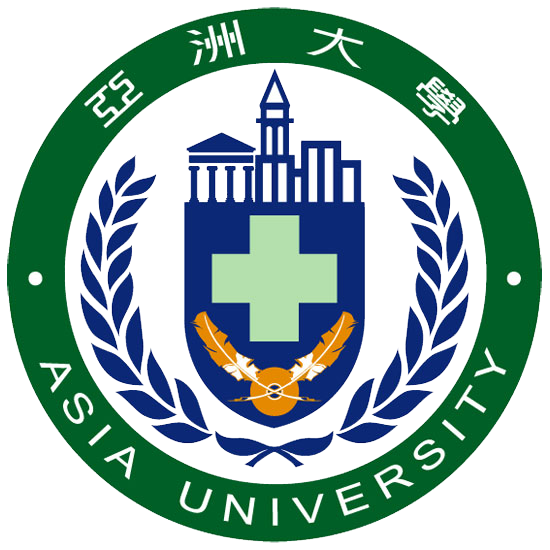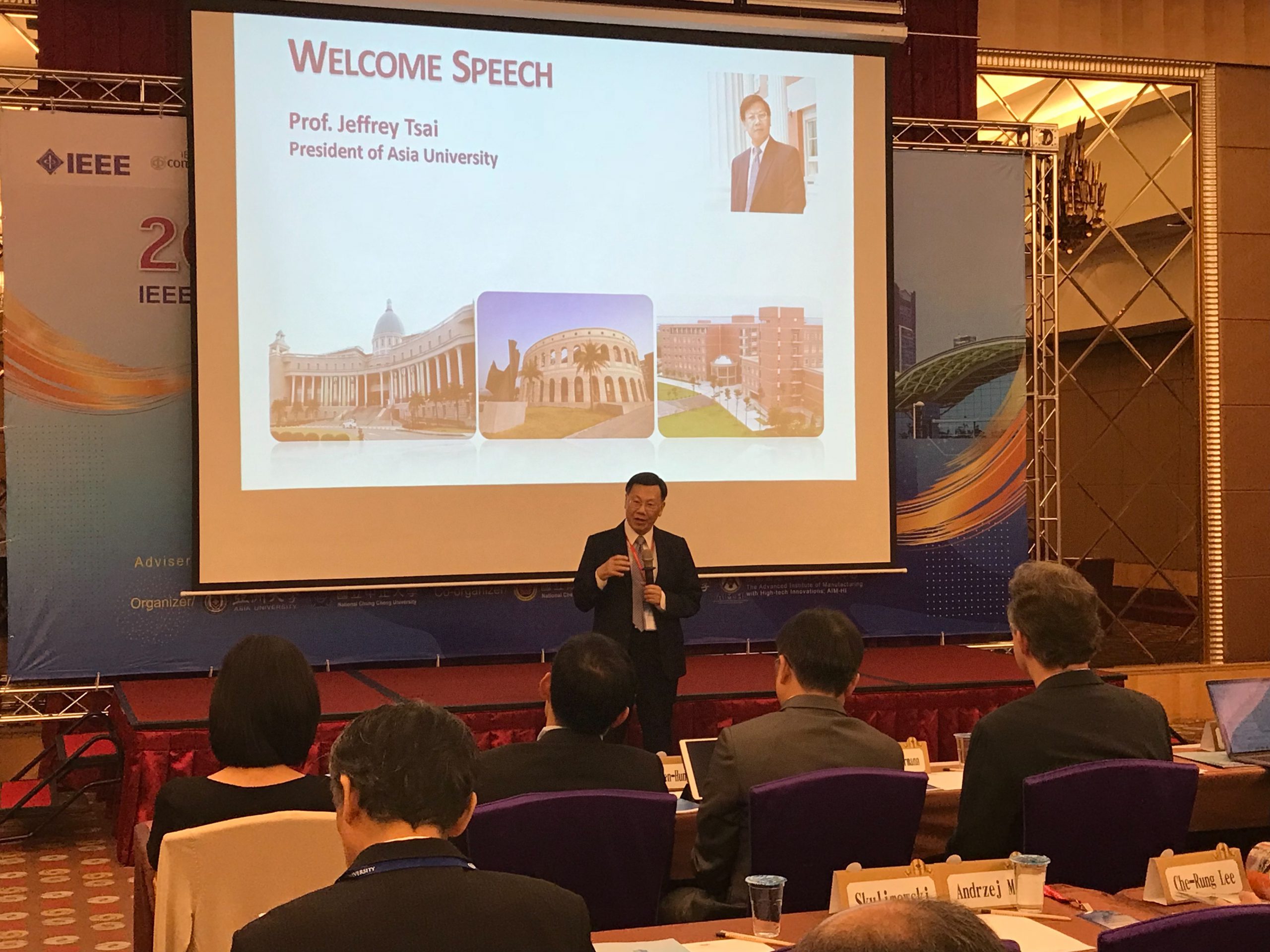Experts and scholars from 27 nations participated in the 2019 IEEE Conferences on several computing issues hosted by AU, and published a total of 121 papers.
2019 IEEE Joint International Conferences on Big Data Intelligence and Computing (DataCom), Service-Oriented Computing and Applications (SOCA), Cloud and Service Computing (SC2), and the Internet of Vehicles (IOV) were held on November 18-21 in Kaohsiung, Taiwan, hosted by Asia University. In these conferences, research experts from Germany, Japan, and Singapore were invited as keynote speakers. Furthermore, the conferences attracted scholars and experts from 27 different countries to participate in, and a total of 121 papers of innovative works on big data, cloud computing, artificial intelligence, and deep learning were published in the conferences.

Asia University (AU) President Jeffrey J. P. Tsai held the 2019 IEEE joint international conference on DataCom, SOCA, SC2, and IOV, and gave a welcome speech.
At the opening ceremony, Jeffrey J. P. Tsai, the President at Asia University (AU), gave a welcome speech to all the attendees, and thanked the organizers of the events for attracting so many high-quality research contributions. In order to provide an integrated international forum for engineers and scientists, the AU organizers invited many foreign research experts, including Prof. Marco Aiello from Germany, Prof. Hideyuki Tokuda from Japan, Prof. Roger Zimmermann from Singapore, and Dr. Tzi Cker Chiueh from Taiwan, as the conference keynote speakers to present their latest research results and the current industrial trends. The topics of the conferences are about the advanced technologies of big data, cloud computing, artificial intelligence, service computing, connected cars, and deep learning.
In the first keynote speech, Prof. Hideyuki Tokuda from Keio University in Japan presented his viewpoint that the developments of IoT and AI are accelerating the implementation of a super smart society, called “Society 5.0,” where smart devices, sensors, and actuators can create a smart IoT system by connecting services in transportation, manufacturing, energy, environment, disaster prevention, security, healthcare, and more.
A shot of President Jeffrey J. P. Tsai of AU and the renowned experts and scholars during the opening ceremony.
Next, Prof. Roger Zimmermann from National University of Singapore elaborated his observation that by fusing various data streams such as multimedia and spatial GPS trajectories provided especially by smart phones, it becomes very convenient to record mobile videos. He also indicated that rapid improvements on integrated sensor hardware in mobile devices make the acquisitions of high-quality videos with sensor metadata possible. Moreover, Prof. Marco Aiello from the University of Stuttgart in Germany explained that the birth and evolution of information and communication technologies have been derived from radical and rapid innovations of various sources.
Finally, Dr. Tzi-Cker Chiueh, the director of the Information and Communication Laboratories of the Industrial Technology Research Institute in Taiwan, introduced that the goal of the S3 (Surrounding Sensing Subsystem) project is to develop a comprehensive perception technology suite required for autonomous driving vehicles (ADV). It is a 4-year project funded by the Ministry of Economic Affairs. The target suite includes real-time analysis algorithms for sensor data from cameras, LiDARs, and RADARs, and effective fusion algorithms of multiple types of sensors at the raw-data level and the analysis-result level.
A shot of AU President Jeffrey J. P. Tsai and the attendees, including Prof. Ching-Hsien Hsu, the Dean of College of Information and Electrical Engineering at AU, Prof. Marco Aiello from Germany, Prof. Hideyuki Tokuda from Japan, and Prof. Roger Zimmermann from Singapore, getting gathering together at the end of the conference.

 OFFICE OF ACADEMIC AFFAIRS-Student Internship and Learning Guidance Division
OFFICE OF ACADEMIC AFFAIRS-Student Internship and Learning Guidance Division
